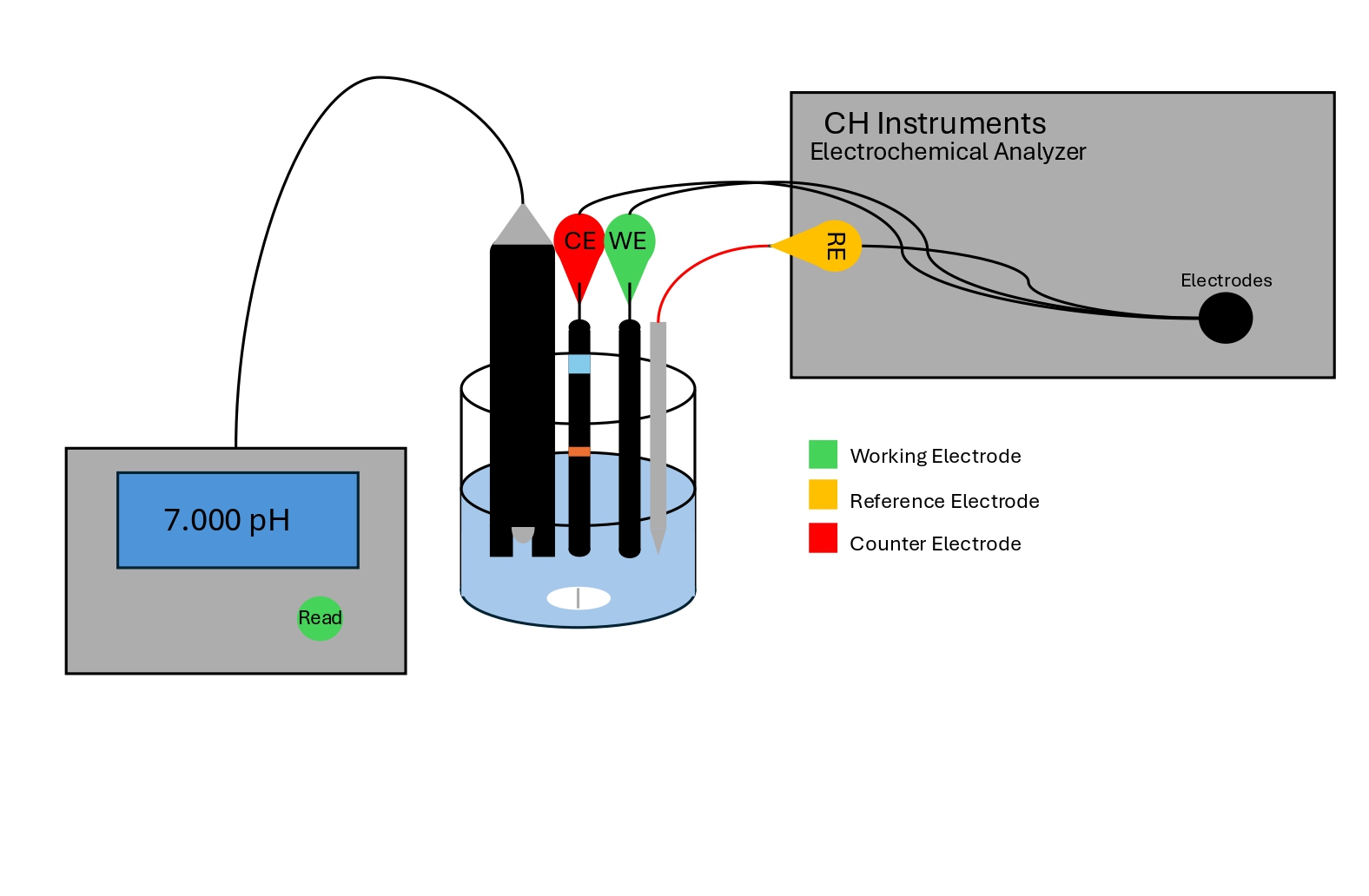

This video contains proprietary information and cannot be shared publicly at this time.
Figure 1

Figure 2

Team 4
Team Members |
Faculty Advisor |
Aislin Robb |
Yu Lei Sponsor University of Connecticut |
sponsored by
Sponsor Image Not Available
Solid-State pH Sensor For Long-Term Marine Applications
Currently, scientists are struggling to continuously monitor pH levels in many marine applications. Measuring the pH of water is important to keep people and marine life safe from harmful substances. The current glass pH sensors on the market are expensive, brittle, and unsuitable for long-term marine monitoring. Our team designed an inexpensive solid-state pH sensor that will monitor levels of pH continuously in marine applications. Our design involves pairing iridium oxide with a proton exchange membrane to achieve a working electrode that is continuously measuring. We tested this electrode over the course of a couple months and consistently monitored it for signs of degradation or accuracy fall off. After finalizing the durability, we proceeded with adapting our oxide onto a small-scale screen-printed electrode to improve manufacturability and reduce the overall cost. By using screen-printed electrodes, each of our sensors will cost only cents to produce, allowing us to market them at a lower price than current sensors. Though there are many cost benefits to our sensor, there are other implications we need to consider. One of these considerations includes the mining of iridium in South Africa, which is costly to the environment and provides dangerous working conditions for miners. Therefore, future researchers should further explore the process of recycling iridium oxide. The anticipated impact for this project will allow scientists to cheaply monitor water sources continuously and accurately for a couple months.
